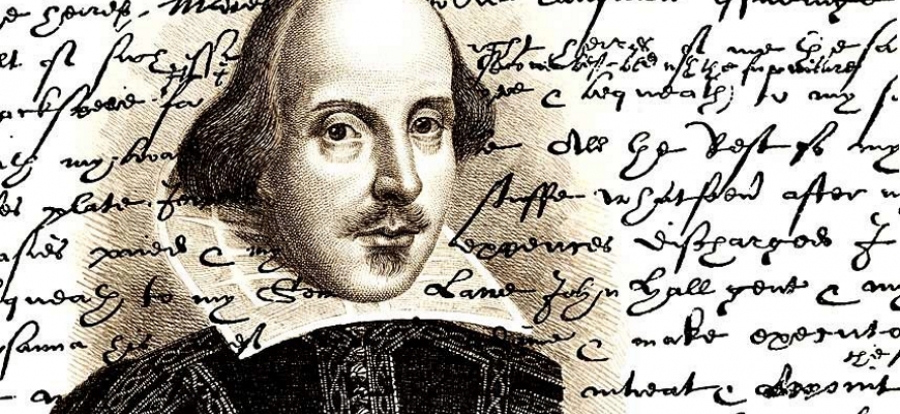However, we want to challenge the notion that Shakespeare is inaccessible. Start them young on their journey with Shakespeare, and children will find that Shakespeare is relevant, engaging, accessible and, above all, fun!
Many people shy away from teaching Shakespeare, but we encourage teachers to embed Shakespeare in the curriculum. Our ultimate aim is that every child in every Primary school will be given the opportunity to be inspired by Shakespeare’s remarkable stories, language and heritage. We want children to have a great first encounter with Shakespeare. To support teachers in this process, here are 10 top tips for teaching Shakespeare:
1. Get hands-on.
Learning about Shakespeare in the Primary classroom is most rewarding when children have the chance to do. Making hornbooks, cooking Tudor gingerbread, designing money pots, writing with quills and mastering Elizabethan court dances are just a few of the ways in which children can learn about Shakespeare, and the times in which he lived, through meaningful practical activities.
2. Cross-Curricular activities.
There are many routes to learning Shakespeare not just through English, Drama and the plays. Shakespeare can be used as a vehicle to teach all subjects. He was born in 1564, the same year that the plague was having a devastating effect across England. Pupils can interpret data collected from Tudor burials registers and interrogate statistics related to the recorded plague deaths in Stratford-upon-Avon. This is real-life Maths, Tudor style!
3. Links to social history.
It is important to look at the plays in the context of the time in which they were written. The life and times help you to access the plays, studying the plays themselves help you to learn more about the life and times in which they were written and performed – one aspect sheds light on the other. For children, learning about the context in which the plays are set: the clothes people wore, the food they ate, the houses they lives in, all help illustrate the meaning behind the text, which can be off-putting for children at first glance.
4. Root strongly in the genuine historical and archival research.
As emphasised in the new Primary History Curriculum, it is important for children to understand how we find out about the past. Using portraits, inventories and registers pupils can gain an understanding of the importance of Primary sources. Where possible, link studies to your own local heritage and visit your library, archives or record office.
5. Make connections.
Shakespeare is as relevant today as he was 400 years ago! Use a variety of artefacts and texts to bring history to life. Compare and contrast with the modern day: what is the same and what is different?
6. If possible, watch a Shakespeare play or visit Shakespeare’s Stratford.
However, you do not need to be in Stratford to experience Shakespeare – watch one of the plays in your local area, screen a film adaption for children, arrange for a Theatre in Education (TIE) group to visit your school or participate in Shakespeare Week events taking place across the UK.
7. Involve the whole school.
Many teachers have shared success stories of a whole school approach to Shakespeare. Think creatively about how you can involve everyone. Shakespeare should not be limited to Years 5 and 6. Children can be involved from as early as Foundation Stage. Each year group could work with a different play, or the whole school could focus on just one. From masks to monologues, from puppets to prologues, there really is something for every child to enjoy.
8. Link with other schools.
Remember that Shakespeare’s plays were written to be performed. Likewise, children’s journeys with Shakespeare should also be shared, whether that be through writing, performance or art – the possibilities really are endless. Create a joint exhibition of the pupils’ Shakespeare inspired creations. This exhibition might feature portraits, caricatures, comic strips, storyboard scenes, models, stage sets, sculptures and sonnets.
9. Have confidence.
Shakespeare is all around us: in the language we use daily, in the names of people and streets, in theatres all across the world. You do not have to be an expert in Shakespeare to engage young children with Shakespeare. Do not be frightened to use original text with Primary school children.
10. Make it fun and interactive.
Whether you do an assembly, a dress up day, a whole school theme or a full scale production, Shakespeare can be relevant and engaging. Be ambitious, and do not forget to shout about your journey with Shakespeare!
Having chatted to lots of teachers across the country, we know that many schools are providing interactive and inspirational Shakespearian activities in this special anniversary year, encouraging the next generation to foster a love for Shakespeare and continue his legacy. Ben Jonson, a contemporary playwright of the Bard, said Shakespeare “was not of an age, but for all time”. As education officers, passionate about History, Literacy and creativity, we believe that Shakespeare is for all time, and for all ages!
Do you teach the Bard to Primary pupils? Share your experiences below!


















